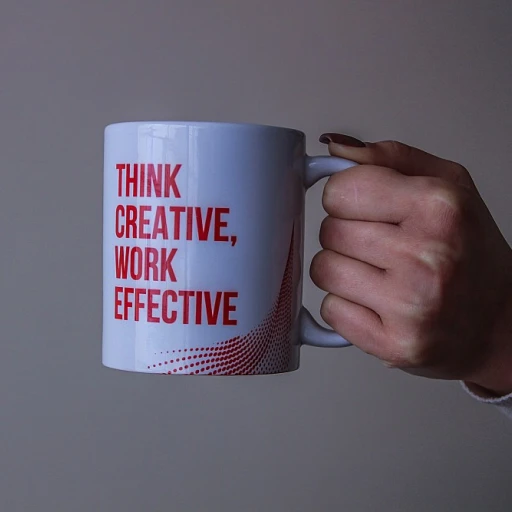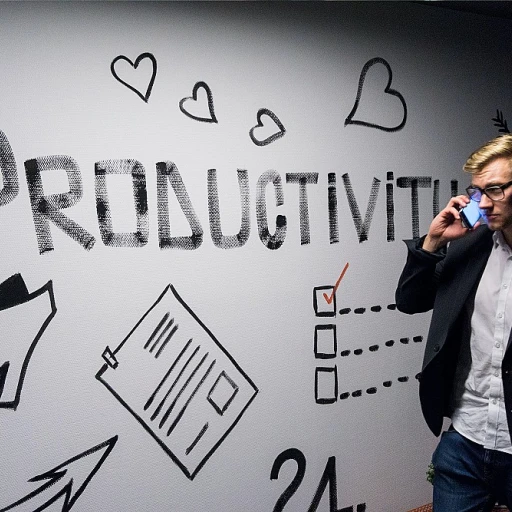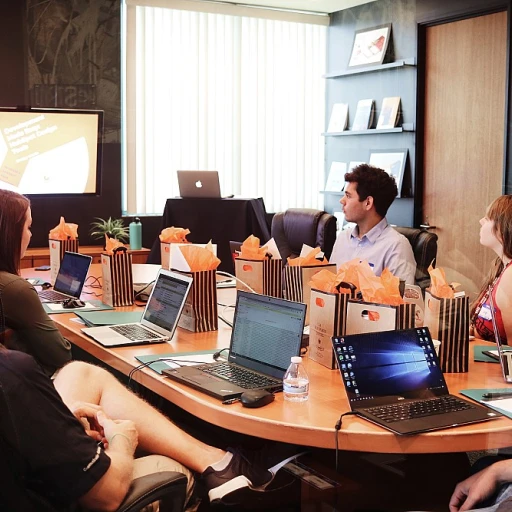Understanding the Role of Employer Branding in Hiring
Employer Branding: A Foundation for Effective Hiring
Understanding the integral role of employer branding in the job interview process is pivotal for making informed hiring decisions. A strong employer brand not only attracts top-tier candidates but also aligns them with your company culture. Prospective employees often encounter multiple interview questions that aim to gauge their potential fit within the organization. These questions help both the candidate and the company assess alignment and ensure a good fit. To effectively utilize employer branding in hiring, companies should focus on these key areas:- Company Values: Reflecting core values through interview questions will help both parties determine if the values align with the candidate's work ethic and principles.
- Culture Fit: By asking targeted questions, employers can assess a candidate's fit into the team and company culture, which is crucial for long-term employee satisfaction and retention.
- Structured Interview Process: Implementing a structured interview process that incorporates questions about critical thinking, problem-solving, and communication skills can provide insightful answers that reflect a candidate's potential role within the team.
Crafting Questions to Reflect Company Values
Designing Questions That Align With Your Company Values
Creating questions that reflect the essence of your company values during an interview process is crucial for forming a cohesive team. It's not merely about assessing a candidate's skills, but more about ensuring a cultural fit within your organization. Crafting the right interview questions allows you to measure if potential employees share your company’s core beliefs and work ethics, which is integral to their future success and satisfaction in the role.- Identify Core Values: Before you can integrate your values into questions, you must clearly define what those values are. Whether it’s innovation, teamwork, or customer service, having a clear understanding helps you develop targeted questions for the interview.
- Behavioral Questions: These questions are particularly useful because they require candidates to describe a time when they exhibited behaviors in line with your company values. This method allows interviewers to gauge how candidates have handled situations in the past, providing insights into their problem-solving and critical thinking skills.
- Open-Ended Questions: Facilitate more in-depth discussions by asking open-ended questions. These help unveil a candidate's motivations and how well they might fit in terms of company culture. For instance, asking, "Can you describe a situation where you had to align your personal goals with your team’s objectives?" can provide valuable perspective into the candidate’s priorities.
- Situational Questions: Pose hypothetical scenarios related to your core values. This will help ascertain how the candidate might handle potential work challenges, showcasing their communication skills and their ability to embody your company’s desired traits.
Behavioral Questions: Predicting Future Performance
Decoding Future Performance Through Behavioral Inquiries
Behavioral questions play a pivotal role in the interview process by helping prospective employers gauge a candidate's future performance. This isn't about asking questions that simply test technical skills; it’s about exploring past work experiences that reveal how candidates have responded to various job-related situations. The goal of these questions is to unravel the critical thinking and problem-solving abilities of the candidate. By asking them to "describe a time" when they faced a particular challenge, you enable them to showcase their skills in critical situations. For instance, questions like, "Can you describe a time when you had to resolve a conflict within your team?" or "Share an experience where you had to meet a tight deadline under pressure," are some of the best interview questions for this purpose. To assess soft skills alongside technical abilities, it’s effective to ask follow-up questions that delve deeper. This could include inquiries about how they communicated with their team or how they adapted their strategies in response to feedback. Through such situational interview questions, companies can evaluate whether the candidates possess traits that align with the company culture and values. Behavioral interview questions not only help in predicting how candidates will react in future roles but also provide insights into their work ethic and motivation. For instance, a good fit for a role might be someone who illustrates perseverance in the face of challenges or exhibits strong communication skills that can enhance team dynamics. For more on how understanding the role of organizational culture inventory can impact your hiring strategy, visit our in-depth analysis. It will help you further align your interview questions to predict candidate success effectively.Assessing Cultural Fit Through Strategic Inquiry
Evaluating Cultural Fit with Insightful Inquiry
In the interview process, gauging whether a candidate is a cultural fit within your company is crucial, yet it can be challenging. A candidate who aligns well with your organization's values and work environment is more likely to thrive and contribute positively to the team. Here are some strategies and tips to enhance your assessment of cultural fit. Start with questions that illuminate the candidate's understanding and interest in your company culture. Encourage the candidate to describe their previous experience in environments similar to yours, which will help you determine compatibility.- Describe a time when you had to adapt to a different company culture. How did you manage this change?
- What does the ideal work culture look like to you? This question helps reveal the candidate’s natural work preferences and if they align with your company's environment.
- How do you engage with team members who have diverse perspectives? Answers to this query can show the candidate's communication skills and openness, both crucial for fitting into a varied team.
Evaluating Skills and Competencies Effectively
Making the Most of Skills and Competencies Evaluation
In the hiring process, evaluating a candidate's skills and competencies is just as crucial as understanding their cultural fit or predicting their future performance. This is where skills and competencies evaluation becomes paramount, as it provides a clear picture of what a candidate can bring to the table in terms of technical and soft skills.To achieve this, it's essential to tailor your interview questions to explore both the hard and soft skills relevant to the job. Here’s how you can make the most out of this evaluation:
- Identify Key Skills Required for the Role: To begin, clearly outline the key skills critical for the position at hand. This could include technical abilities related to the job, problem-solving, critical thinking, or even communication skills.
- Use Behavioral and Situational Questions: These types of questions can reveal a candidate's competencies by asking them to describe a time when they had to use certain skills in past work experiences. For example, a situational interview question may be, "Describe a time when you faced a major challenge at work and how you overcame it." This allows candidates to demonstrate their problem-solving and critical thinking skills.
- Assess the Soft Skills: Don’t underestimate the power of soft skills like teamwork, adaptability, and leadership. These can be just as important as technical skills and may define how well a candidate will fit within your team. Questions regarding past teamwork experiences or how the candidate handles feedback can be insightful.
- Tailor Questions to Reflect Company Culture: Crafting questions that align with the company’s values can help in assessing if a candidate will thrive in your work environment. For instance, if your company values innovation, you might ask, "Can you describe a time when you introduced a new method or idea to your team?"
- Encourage Detailed Answers: Encouraging candidates to provide complete and detailed answers will help you better understand their skills and past experiences. The more comprehensive their responses, the more data you have to determine if they're the best fit for the role.
Effective use of these strategies can provide valuable insights into a candidate's capabilities, ensuring that they possess the necessary skills and experiences. This approach paints a clearer picture of how they might perform in the future and contributes to making informed hiring decisions.
Leveraging Feedback for Continuous Improvement
Building a Feedback-Driven Organizational Culture
Incorporating feedback into the hiring process is crucial for continuous improvement, and it directly impacts your company's ability to attract top talent. Feedback loops help refine interview questions, enhance the interview process, and ultimately, better assess candidates' skills and cultural fit.
To leverage feedback effectively, consider the following steps:
- Collect Feedback Consistently: After each interview, gather insights from both the candidates and interviewers. Understanding their perspectives on interview questions, the overall job interview experience, and their perceptions of the company can pinpoint areas for improvement.
- Implement Structured Review Sessions: Organize regular meetings where the hiring team can review interview processes and discuss feedback. This collaborative approach ensures that any changes made are aligned with company values and strategic hiring goals.
- Focus on Constructive Criticism: Encouraging open and honest feedback can be challenging, but it's essential for identifying gaps in your interview process. Ensure that the feedback collected is actionable and solution-oriented.
- Track Improvements Over Time: Set clear metrics to track the effectiveness of changes implemented. This could include measuring the quality of new hires, the efficiency of the interview process, and candidate engagement levels.
- Communicate Feedback Outcomes: Share insights and changes made based on feedback with the entire team. Transparency not only fosters trust but also signals your commitment to creating an excellent company culture.
By cultivating a feedback-driven culture, you'll reinforce a commitment to improvement that resonates with prospective employees. This approach not only enhances the hiring experience but also ensures that the best candidates will be a good fit for both the role and the team.













